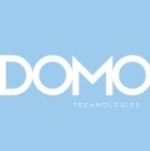Robustness:
- The environment is super stable, once you have the right environmental resources (CPU, memory, etc.), the platform will be rock solid.
- BI on BI: You will get KPIs out of the box in the Cognos administration about the usage of your environment.
- Audit: plenty of user information regarding running, modifying reports and other objects.
- Granular security and degree of access control.
- Lots of logging information, this will help you diagnostic any issues you might encounter.
Scalability:
- You can size the environment specs and configuration from 10 all the way to thousands of users.
- You just have to add more resources (CPU, memory, etc.) or another component (Application Server, Content Manager).
- And if you have the right design and architecture, you can achieve multi-tenancy.
It is a very complete solution: versatile, flexible, robust, and scalable.
It is serving as the single source of truth, consolidating information from various systems.
At the moment ,the metadata tool (Framework Manager) is client based, meaning, you have to install the tool itself in a workstation. You will also need any ODBC/OLDB and database drivers installed on that computer to access data and start modeling. This tool design and the way it works is already outdated. Your models can get corrupted for numerous reasons; that's why it is always good to back up and save your work. The tool does NOT support multi-user development, meaning only one developer per model is allow at any given time. You also rely on the file system all the time. A cloud-based / multi-user solution would be more than welcome.
IBM Cognos and the entire suite does NOT come with any source/version control capabilities out of the box. If you made a change to a report and, for whatever reason, you want to go back to the previous iteration, you will need to restore a backup or an export; if you didn't make a backup, you will be out of luck. Same with every single object in the environment (packages, queries, security, administration, settings, etc).
They also need to take more advantage of new in-memory technology, and have better integration with other visualization tools.
It would be nice if we could use standard XML as a data source.
I have used it for 11 years.
After going to a full distributed environment (Content Manager, App Server, Gateway), we have not encountered any stability issues.
I have not encountered any scalability issues.
Technical support is good, solid. They gotten better lately.
We previously used Crystal Reports; a more powerful platform was needed, plus IBM Cognos is easier for front-end/business users.
Setting up a full-fledged distributed environment is not for the inexperienced administrator. On a scale from 1 to 10, the complexity level is definitely above 7.5. You need to have low to mid-level network knowledge; need a sense of how database connective and security works. Your average system admin might be able to do a single-server installation.
Don’t be cheap; try the product and scale accordingly. Pricing is a lot more competitive these days.
It was already in place when I was hired, but I had already have seen various products, such as OBIEE, Crystal, MicroStrategy, Qlik, etc. Each has their own strengths and weaknesses.
Make sure you try this product well before implementation.
Accommodate resources.
Also make sure your users and internal assets (administrators, developers, and architects) get formal training.
Hiring professional services is always a plus during implementation and the first wave of development.
















JavaScript support has advanced significantly over earlier versions with the use of Custom Controls.